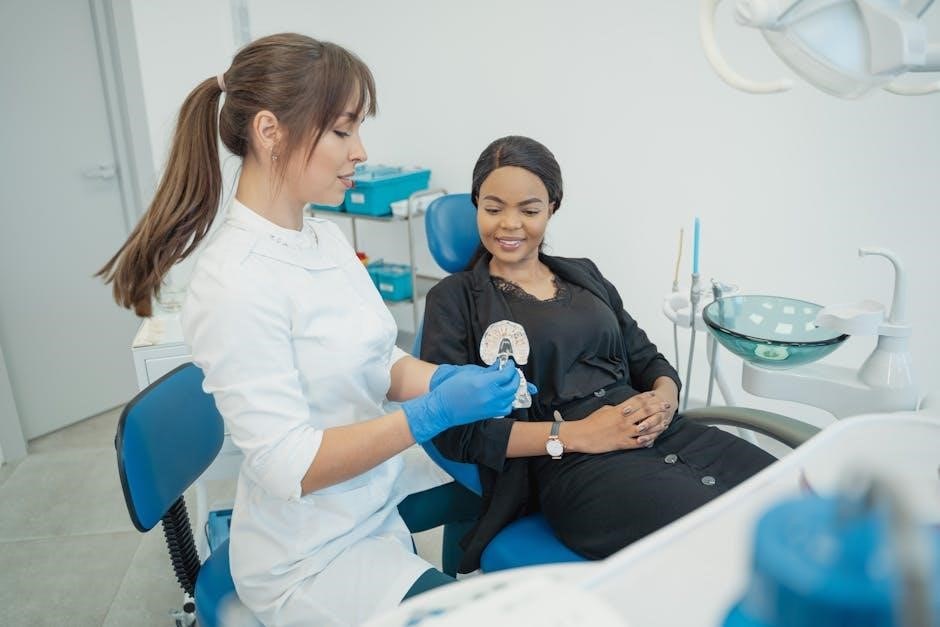Understanding Infidelity: A Treatment Plan Overview
Infidelity, a deeply impactful breach of trust, demands a structured treatment plan. This overview highlights therapeutic approaches like CBT and EFT.
Couple’s therapy offers pathways to repair relationships, often leading to increased satisfaction post-intervention.
Defining Infidelity and its Impact
Infidelity is a violation of trust and commitment within a relationship, causing emotional devastation.
It leaves both partners struggling with pain, confusion, and heartache. Couples therapy helps partners move forward, with many achieving greater satisfaction post-therapy.
Therapists equipped with tools and techniques like cognitive-behavioral therapy can help individuals challenge negative thought patterns linked to infidelity.
The impact extends to anxiety, depression, and the need for rebuilding communication and trust.
Initial Assessment and Crisis Management
After infidelity, intense emotions and crises are normal. Marriage and family therapists can strengthen marriages post-infidelity. Crisis management includes immediate support for emotional distress and assessing the relationship’s viability for repair and rebuilding.
Addressing Immediate Emotional Distress
Infidelity causes emotional trauma and distress; thus, addressing these feelings is crucial. Therapists give tools to cope with intense emotions like anger and betrayal.
Evidence-based approaches, such as CBT, help reframe negative thoughts. The betrayed partner can control obsessive thoughts or ruminations about the cheating by tapping into their emotions.
Therapy provides a safe space for communication and healing to begin addressing the pain.
Assessing the Relationship’s Viability
After infidelity, assessing if the relationship can recover is vital. Factors include reasons for the affair and current communication styles.
Counseling can uncover feelings that were not great, but this is not an excuse for betrayal.
Most relationships survive infidelity.
Some couples become stronger and more intimate through therapy.
Therapy assesses if both partners are willing to work on rebuilding trust.
Therapeutic Approaches for Infidelity
Couples therapy after infidelity can move partners forward.
Effective approaches include CBT, EFT, and Integrative Behavioral Couples Therapy (IBCT).
These therapies rebuild trust and improve communication between partners.
Cognitive Behavioral Therapy (CBT) Techniques
CBT is an effective tool for healing after infidelity, helping individuals challenge negative thought patterns. Therapists can provide necessary techniques to cope with anxiety and depression. CBT reframes negative thoughts stemming from the betrayal. This helps individuals gain clarity without dwelling on hypothetical scenarios.
Sessions offer a safe space to explore questions and feelings.
It can help the betrayed partner control obsessive thoughts about the cheating.
Emotionally Focused Therapy (EFT) Techniques
Emotionally Focused Therapy (EFT) is designed to rebuild loving connections after infidelity. It focuses on emotional trauma and repairing broken bonds. EFT helps couples rebuild trust and secure attachment by identifying negative cycles.
Techniques include identifying patterns of interaction that contribute to distress. The goal is to create a more secure and responsive relationship. EFT facilitates open communication, addressing emotional wounds.
Integrative Behavioral Couples Therapy (IBCT) Strategies
Integrative Behavioral Couples Therapy (IBCT) strategies explore infidelity using its explanatory model. IBCT emphasizes understanding underlying relationship dynamics and contributing factors. The approach encourages open dialogue without blame.
Key strategies include acceptance and behavior change techniques. IBCT aims to promote empathy and understanding between partners. It assists in developing more adaptive communication patterns.
Rebuilding Trust and Communication
Rebuilding trust after infidelity involves radical honesty and open communication. Therapeutic techniques assist couples in addressing emotional wounds.
Counseling fosters understanding and helps both partners in the healing process.
Establishing Radical Honesty
After infidelity, radical honesty is paramount for rebuilding trust. Couples therapy guides partners in achieving clarity without dwelling on hypotheticals. Open and blame-free dialogue is crucial for understanding relationship dynamics. A skilled infidelity therapist creates a safe space for communication. This phase involves addressing emotional wounds and fostering empathy.
Honest conversations, devoid of excuses, are essential for repairing the broken bond. Couples learn to express feelings and needs authentically, laying the foundation for a stronger, more transparent relationship.
Developing Empathy and Understanding
Building empathy and understanding is essential for healing post-infidelity. Couples therapy helps partners address emotional wounds. The betrayed partner needs space to express pain, while the betrayer must acknowledge the impact. Techniques in therapy encourage active listening and validation. Each partner must strive to understand the other’s perspective.
By fostering empathy, couples begin to bridge the emotional gap created by infidelity. This process involves recognizing and validating each other’s feelings, promoting healing and reconnection.

Systemic Considerations in Infidelity Treatment
A systemic approach explores relationship dynamics and contributing factors. This involves introspective journeys to repair the relationship. Therapy encourages open, blame-free dialogue. Consider underlying issues and communication styles for comprehensive healing and growth.
Exploring Underlying Relationship Dynamics
Unfaithfulness often stems from deeper, unaddressed issues within the relationship. Exploring these dynamics requires both partners to engage in honest self-reflection and open communication. It is essential to identify patterns of interaction, unmet needs, and unresolved conflicts that may have contributed to the infidelity.
A therapist can guide this process, helping the couple uncover hidden resentments, power imbalances, and communication breakdowns. Addressing these root causes is crucial for lasting healing and preventing future occurrences.
Identifying Contributing Factors
Pinpointing factors contributing to infidelity goes beyond surface-level explanations. Therapists guide couples to explore individual vulnerabilities, such as low self-esteem or a history of trauma. Relationship-specific issues, like lack of intimacy or unresolved conflicts, must also be examined.
External stressors, including work-related pressure or family issues, can further strain the relationship. By understanding these multifaceted influences, couples can develop targeted strategies to address the underlying causes of infidelity and prevent future occurrences.

Facilitating Forgiveness and Reconciliation
Forgiveness is vital, yet challenging, after infidelity. Therapy guides couples through this intricate process.
Addressing resentment and anger is critical, fostering healing and reconciliation. Open communication, empathy, and commitment are key to rebuilding the relationship.
Understanding the Process of Forgiveness
Forgiveness after infidelity is not about condoning the act but releasing oneself from its grip. It involves acknowledging the pain, processing emotions, and choosing to move forward.
This process is individual, requiring time and self-compassion. Therapy provides a safe space to explore these complex feelings. The betrayed partner can learn to control obsessive thoughts. It’s about emotional healing, not excusing the betrayal, ultimately fostering potential reconciliation.
Addressing Resentment and Anger
Resentment and anger are common emotions following infidelity, requiring direct and healthy management. Therapy offers tools to express these feelings constructively, preventing them from festering.
Techniques like journaling and mindfulness can aid in processing intense emotions. It’s crucial to identify the root causes of resentment and anger, addressing underlying hurts and unmet needs. Open, blame-free dialogue, facilitated by a therapist, helps both partners heal.
Addressing Individual Mental Health
Infidelity often triggers anxiety and depression, necessitating individual support. Therapists employ CBT to challenge negative thoughts and provide coping mechanisms. Addressing individual mental health is crucial for effective relationship healing.
Coping with Anxiety and Depression
Betrayed spouses often experience intense anxiety and depression following infidelity. Specialized therapists provide essential tools and techniques to navigate these overwhelming emotions. Cognitive-Behavioral Therapy (CBT) helps individuals challenge and reframe negative thought patterns associated with the betrayal. Therapy offers a safe space to process grief and loss, fostering resilience and promoting mental well-being during this challenging time. Addressing these issues helps in healing.
Challenging Negative Thought Patterns
Following infidelity, negative thought patterns can significantly impact mental health. Therapeutic approaches, such as Cognitive Behavioral Therapy (CBT), are used to identify and challenge these destructive thoughts. By reframing negative thought patterns, individuals can regain control over their emotions and behaviors. This process involves recognizing cognitive distortions, developing more realistic perspectives, and fostering a healthier mindset. Challenging these thoughts is essential for healing and personal growth after infidelity.

Long-Term Relationship Maintenance
Maintaining a relationship post-infidelity requires commitment. Strategies include strengthening intimacy, developing conflict resolution skills, and open communication. Consistent effort ensures lasting connection, fostering a resilient partnership built on trust and understanding.
Strengthening Intimacy and Connection
Strengthening intimacy and connection after infidelity involves intentional effort from both partners. Focus on rebuilding emotional, physical, and intellectual intimacy through shared experiences.
Practice vulnerability and radical honesty to foster trust. Prioritize quality time, engaging in activities that promote closeness and understanding. Explore each other’s needs and desires, creating a renewed sense of connection. Regular communication and empathy are vital for long-term maintenance, creating a stronger bond.
Developing Conflict Resolution Skills
Developing effective conflict resolution skills is crucial for long-term relationship maintenance after infidelity. Learn to communicate needs and concerns assertively yet respectfully.
Practice active listening and empathy, seeking to understand the other partner’s perspective. Identify triggers and patterns that escalate conflicts, implementing strategies to de-escalate tensions. Explore collaborative problem-solving techniques, focusing on finding mutually acceptable solutions. Couples therapy can provide guidance in developing healthier conflict resolution skills.

When to Consider Separation or Divorce
Recognizing irreconcilable differences is key when healing seems unattainable. Prioritizing individual well-being becomes paramount when the emotional toll is overwhelming. Consider separation or divorce if trust remains fundamentally broken despite therapeutic efforts.
Recognizing Irreconcilable Differences
After infidelity, recognizing irreconcilable differences is crucial. Despite therapy, fundamental values and expectations may clash. If open communication consistently fails and resentment persists, separation might be considered. Ongoing emotional distress, despite efforts to rebuild, signals potential incompatibility. The inability to forgive and move forward, despite therapeutic intervention, highlights irreconcilable differences. Prioritizing individual well-being becomes essential when staying together causes chronic unhappiness and emotional harm. Ultimately, recognizing these differences is a vital step towards making informed decisions about the future.
Prioritizing Individual Well-being
In the aftermath of infidelity, prioritizing individual well-being becomes paramount. While couples therapy aims to rebuild, personal mental health must take precedence if reconciliation proves impossible. Coping with anxiety and depression through individual therapy, like CBT, is essential. Challenging negative thought patterns, often exacerbated by infidelity, promotes emotional stability. If the relationship perpetuates harm, prioritizing one’s safety and happiness is necessary. Recognizing irreconcilable differences allows individuals to detach and focus on healing. Ultimately, self-care and emotional health are vital for navigating separation or divorce with resilience.
Resources and Support Systems
Navigating infidelity requires robust resources. Accessing qualified therapists specializing in infidelity is crucial. Support groups and online communities offer shared experiences and guidance. These systems aid in healing, providing understanding and practical advice during a difficult time.
Finding a Qualified Therapist
Seeking a therapist specializing in infidelity is paramount for effective healing. Look for professionals experienced in Emotionally Focused Therapy (EFT), Cognitive Behavioral Therapy (CBT), or Integrative Behavioral Couples Therapy (IBCT). Therapists should provide a safe space to communicate, process emotions, and develop coping mechanisms. They offer tools and techniques to navigate intense feelings like anger, sadness, and betrayal. A skilled therapist will help challenge negative thought patterns, fostering individual and relational growth, and rebuild trust and intimacy. Ensure they are licensed and possess expertise in infidelity counseling.
Support Groups and Online Communities
Participating in support groups and online communities offers invaluable peer support. These platforms provide a space to share experiences, gain insights, and reduce feelings of isolation. Connecting with others who have navigated infidelity can foster hope and resilience. Online forums offer anonymity and accessibility, enabling individuals to seek support from anywhere. Support groups, both in-person and online, create a sense of belonging and shared understanding. Remember to prioritize online communities that are moderated and safe, ensuring a supportive and respectful environment for healing.
